J. Robert Oppenheimer
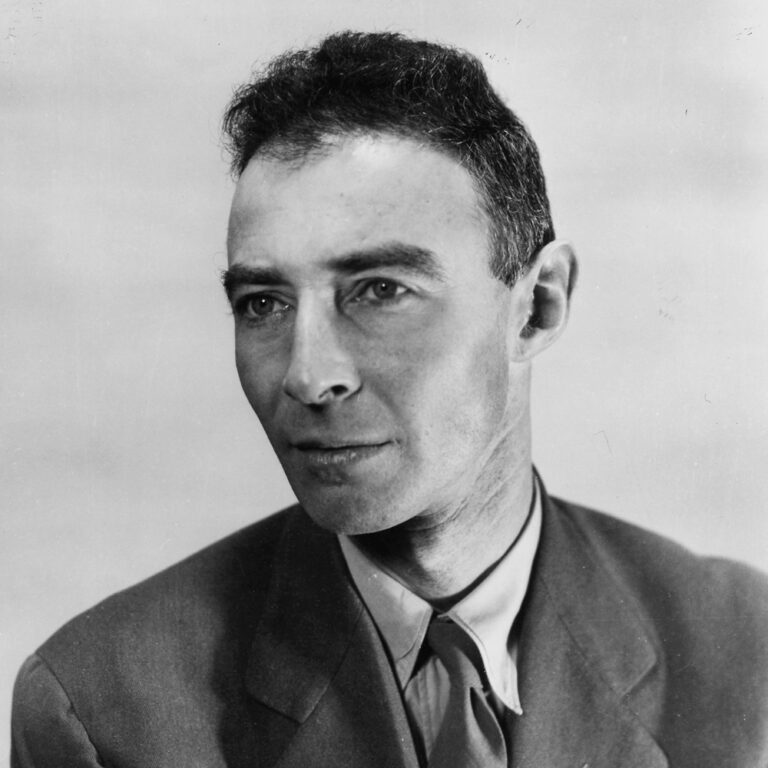
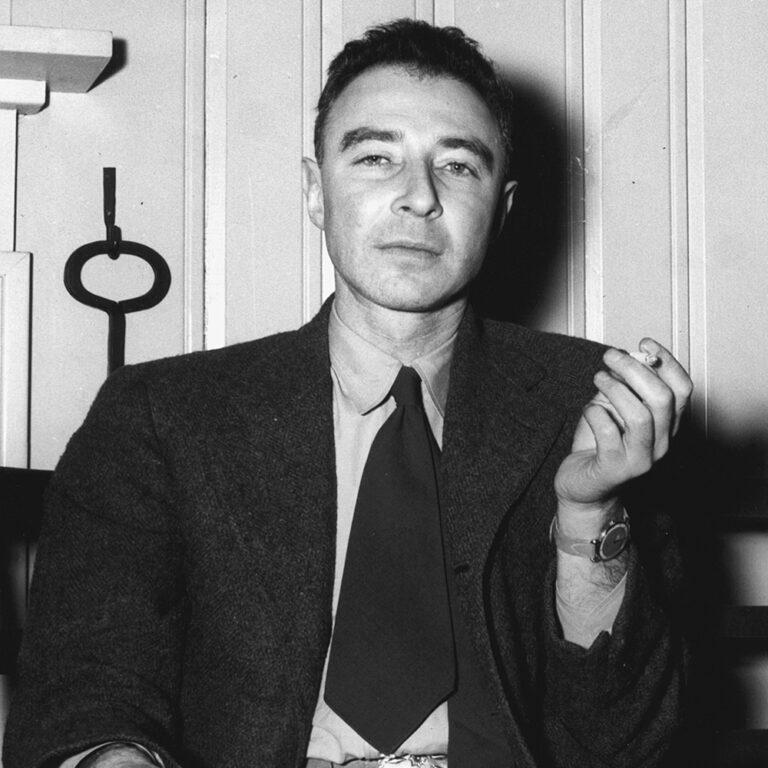
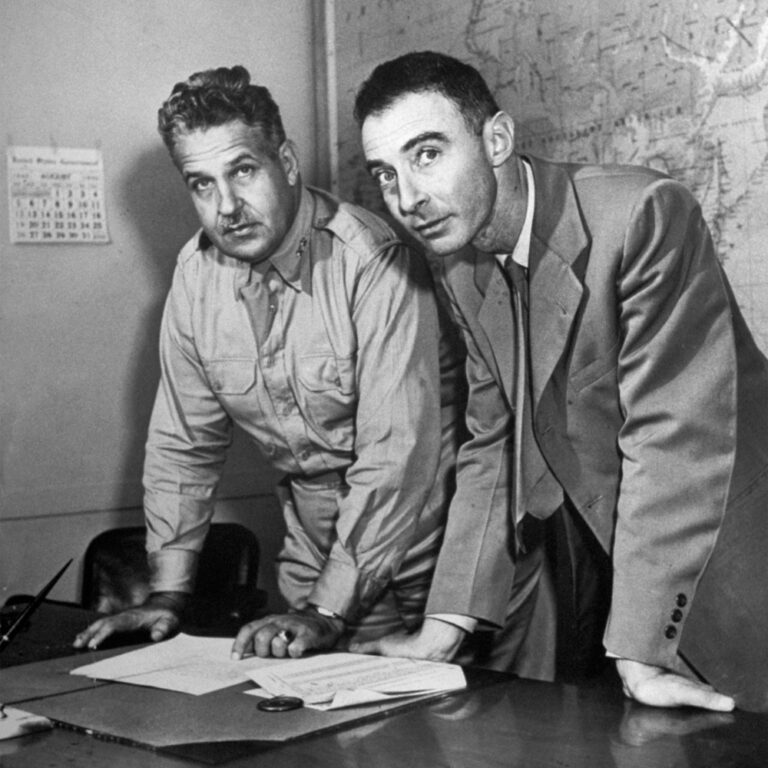
About J. Robert Oppenheimer
J. Robert Oppenheimer (April 22, 1904 – February 18, 1967) was an American theoretical physicist. Oppenheimer served as the director of the Los Alamos Laboratory during World War II, and is often credited as the “father of the atomic bomb” for his role in the Manhattan Project, the research and development undertaking that created the world’s first-ever nuclear weapons.
Oppenheimer attended Harvard University, where he earned a bachelor’s degree in chemistry in 1925, and went on to study physics at the University of Cambridge and University of Göttingen, where he received his PhD in 1927. After completing his education, he held academic positions at the University of California, Berkeley, and the California Institute of Technology (Caltech), and made significant contributions to theoretical physics, including in quantum mechanics and nuclear physics. During World War II, he was recruited to work on the Manhattan Project, and in 1943 was appointed as director of the Los Alamos Laboratory in New Mexico, tasked with developing the weapons. Oppenheimer’s leadership and scientific expertise were instrumental in the success of the project. He was among those who observed the Trinity test on July 16, 1945, in which the first atomic bomb was successfully detonated. He later remarked that the explosion brought to his mind words from the Hindu scripture Bhagavad Gita: “Now I am become Death, the destroyer of worlds.” In August 1945, the atomic bombs were used on the Japanese cities of Hiroshima and Nagasaki, which to date remains the only use of nuclear weapons in war.
After the war ended, Oppenheimer became chairman of the influential General Advisory Committee of the newly created United States Atomic Energy Commission. He used that position to lobby for international control of nuclear power, to avert nuclear proliferation and a nuclear arms race with the Soviet Union. He opposed the development of the hydrogen bomb during a 1949–1950 governmental debate on the question and subsequently took stances on defense-related issues that provoked the ire of some U.S. government and military factions. During the Second Red Scare, those stances, together with past associations Oppenheimer had with people and organizations affiliated with the Communist Party, led to the revocation of his security clearance in a much-written-about hearing in 1954. Effectively stripped of his direct political influence, he continued to lecture, write, and work in physics. Nine years later, President John F. Kennedy awarded him (and Lyndon B. Johnson presented him with) the Enrico Fermi Award as a gesture of political rehabilitation. In 2022, five decades after his death, the U.S. government formally nullified its 1954 decision and affirmed Oppenheimer’s loyalty.
Oppenheimer’s achievements in physics include the Born–Oppenheimer approximation for molecular wave functions, work on the theory of electrons and positrons, the Oppenheimer–Phillips process in nuclear fusion, and the first prediction of quantum tunneling. With his students he also made important contributions to the modern theory of neutron stars and black holes, as well as to quantum mechanics, quantum field theory, and the interactions of cosmic rays. As a teacher and promoter of science, he is remembered as a founding father of the American school of theoretical physics that gained world prominence in the 1930s. After World War II, he became director of the Institute for Advanced Study in Princeton, New Jersey.
Historical Photo Gallery
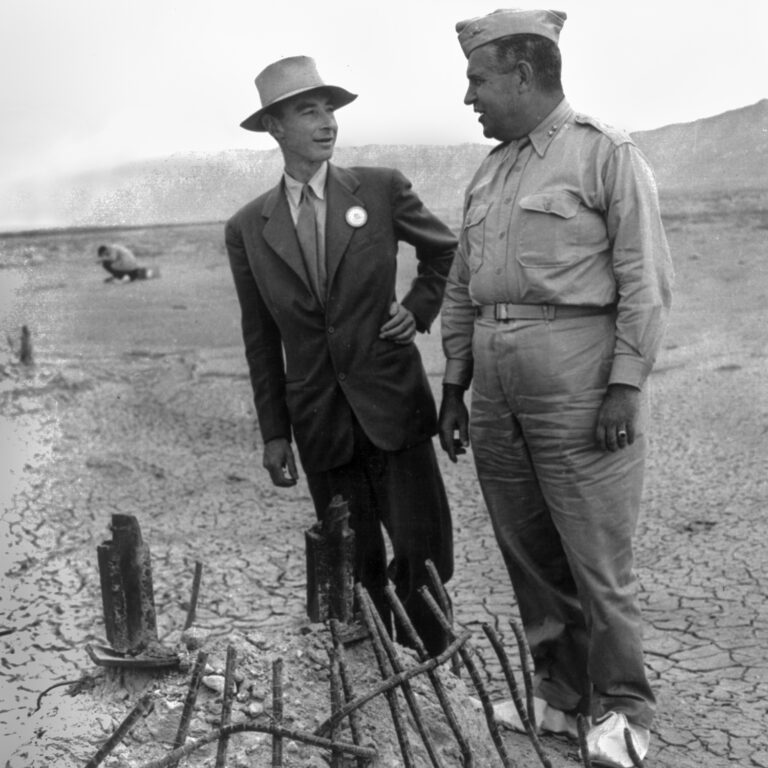
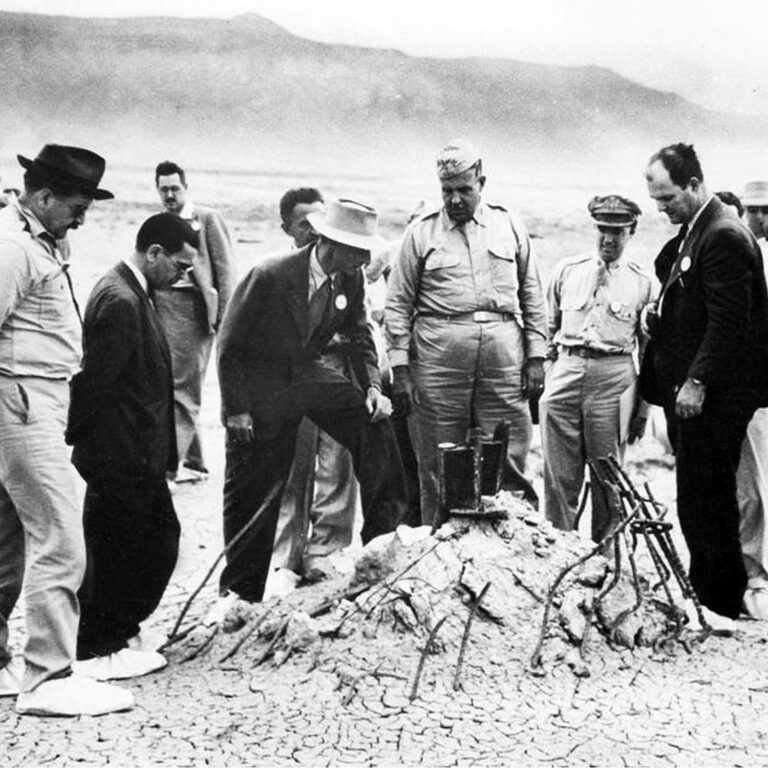
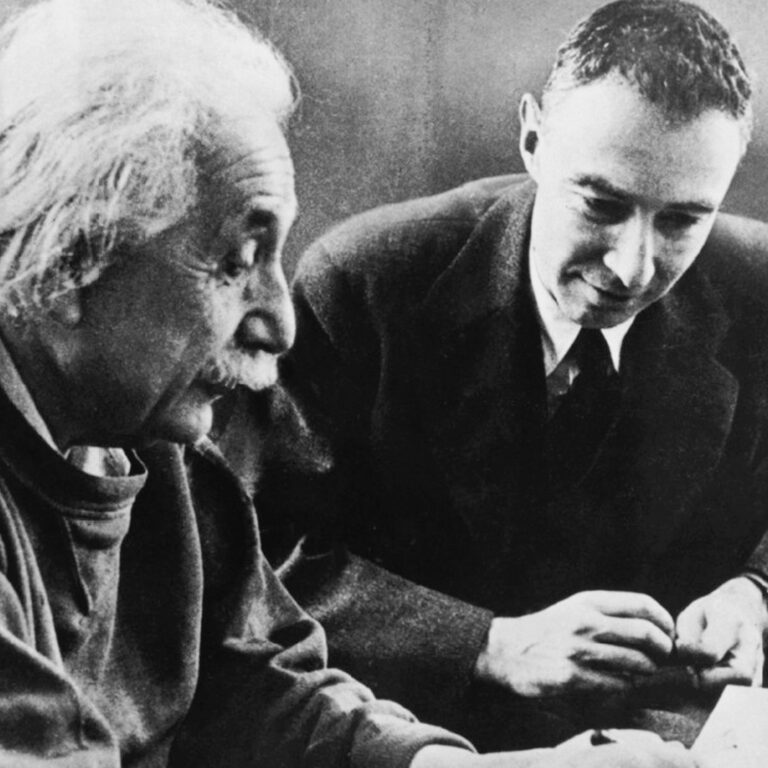
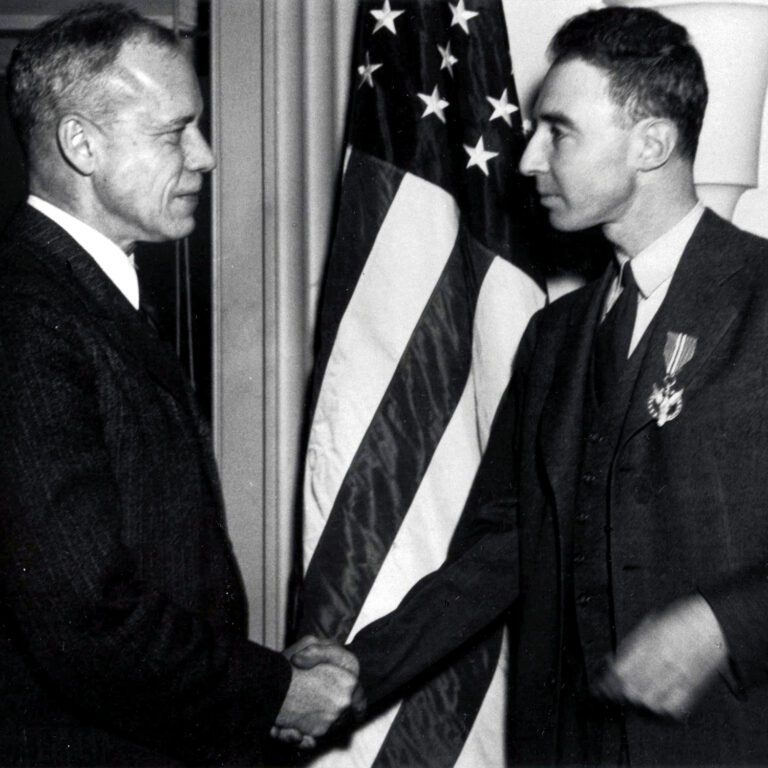
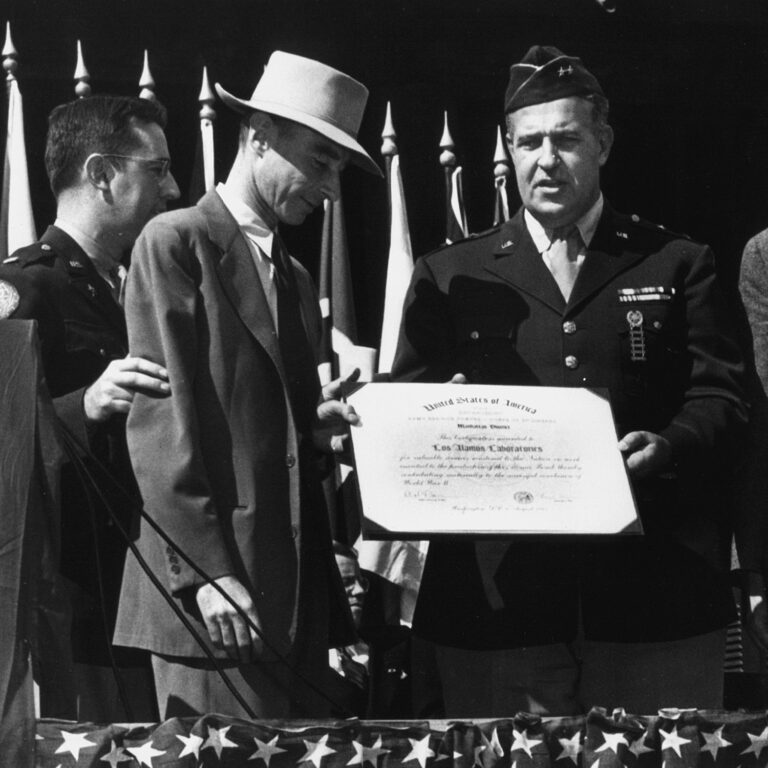
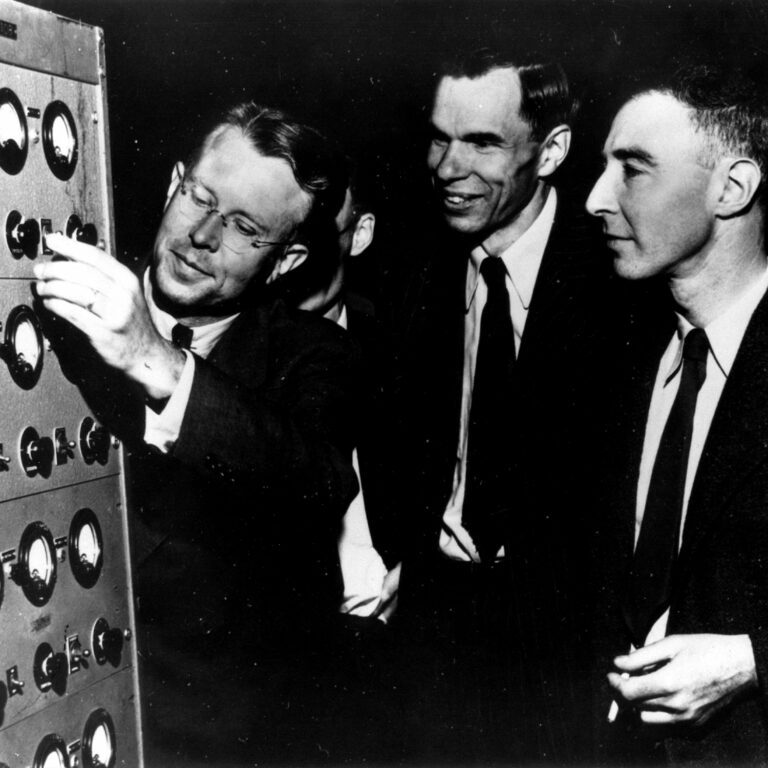
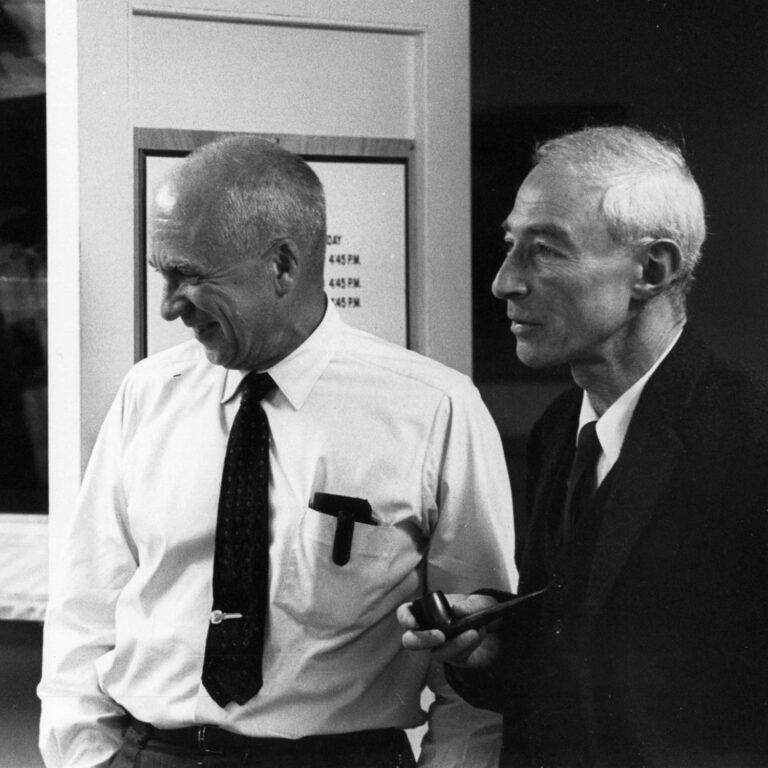
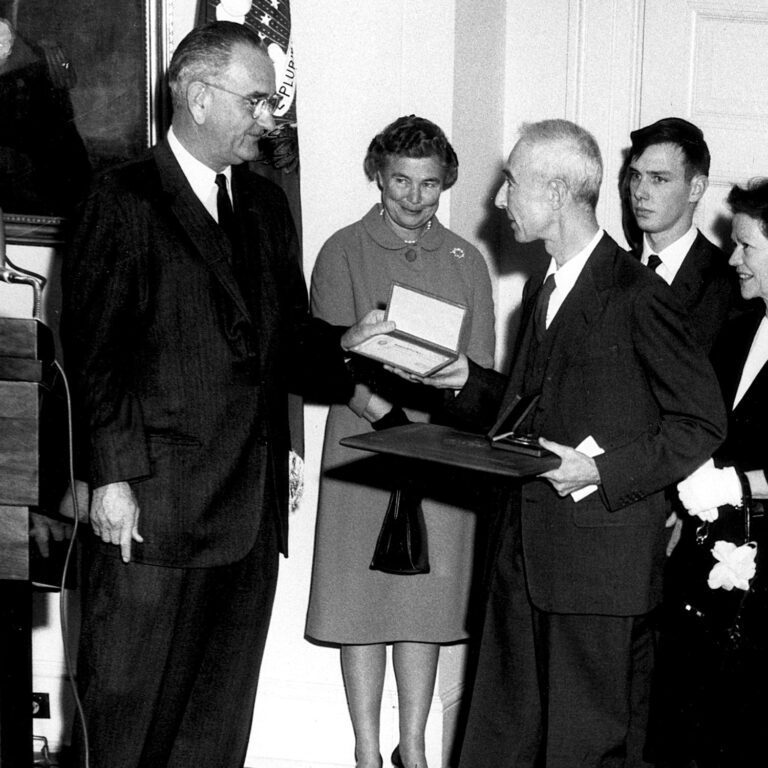
In The News
Interested in continuing the legacy of J. Robert Oppenheimer?
Reach out to us today to learn about how CMG can help you.
